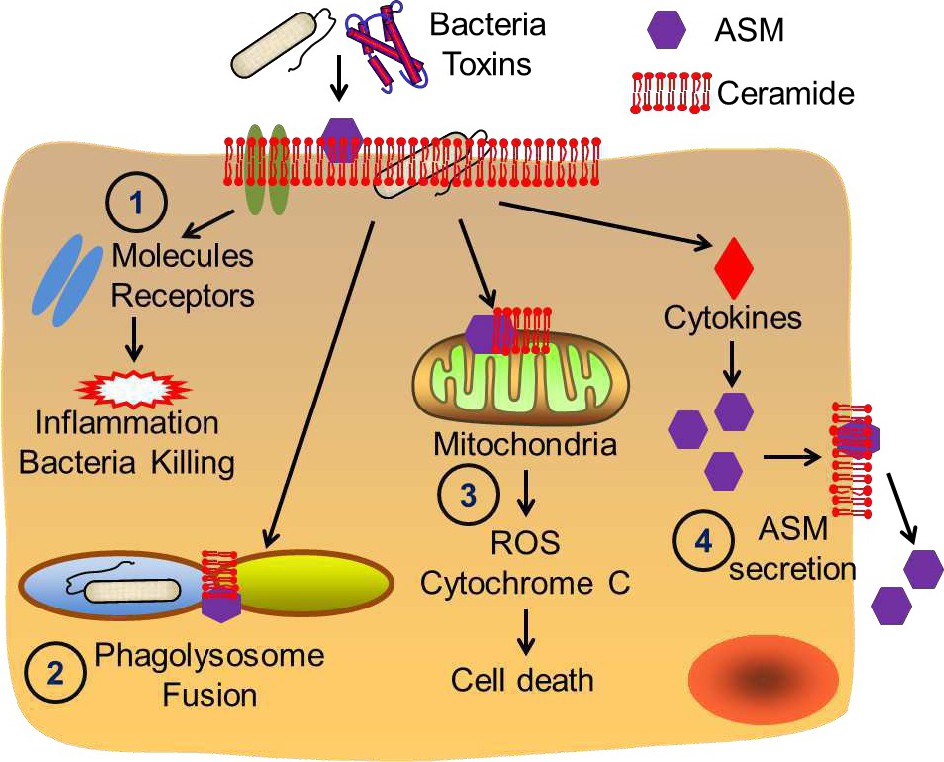Fig. 3. ASM/ceramide system in bacteria-host interactions. 1. Bacteria induce activation of ASM and release of ceramide, which recruits signaling molecules and receptors, such as NADPH oxidase, ErbB2, JNK, CFTR, CD95, JNK, and p38 kinase, therefore modulating ROS generation, cytokine release, host cell death, and bacterial killing. 2. ASM-generated ceramide recruits molecules and receptors and mediates bacterial internalization. In addition, the ASM/ceramide system is needed for the fusion of phagolysosomes. 3. The ASM/ceramide system is involved in mitochondria-induced cell death upon infection. 4. Inflammatory cytokines stimulate the secretion of ASM from the cytoplasm to the extracellular environment.
